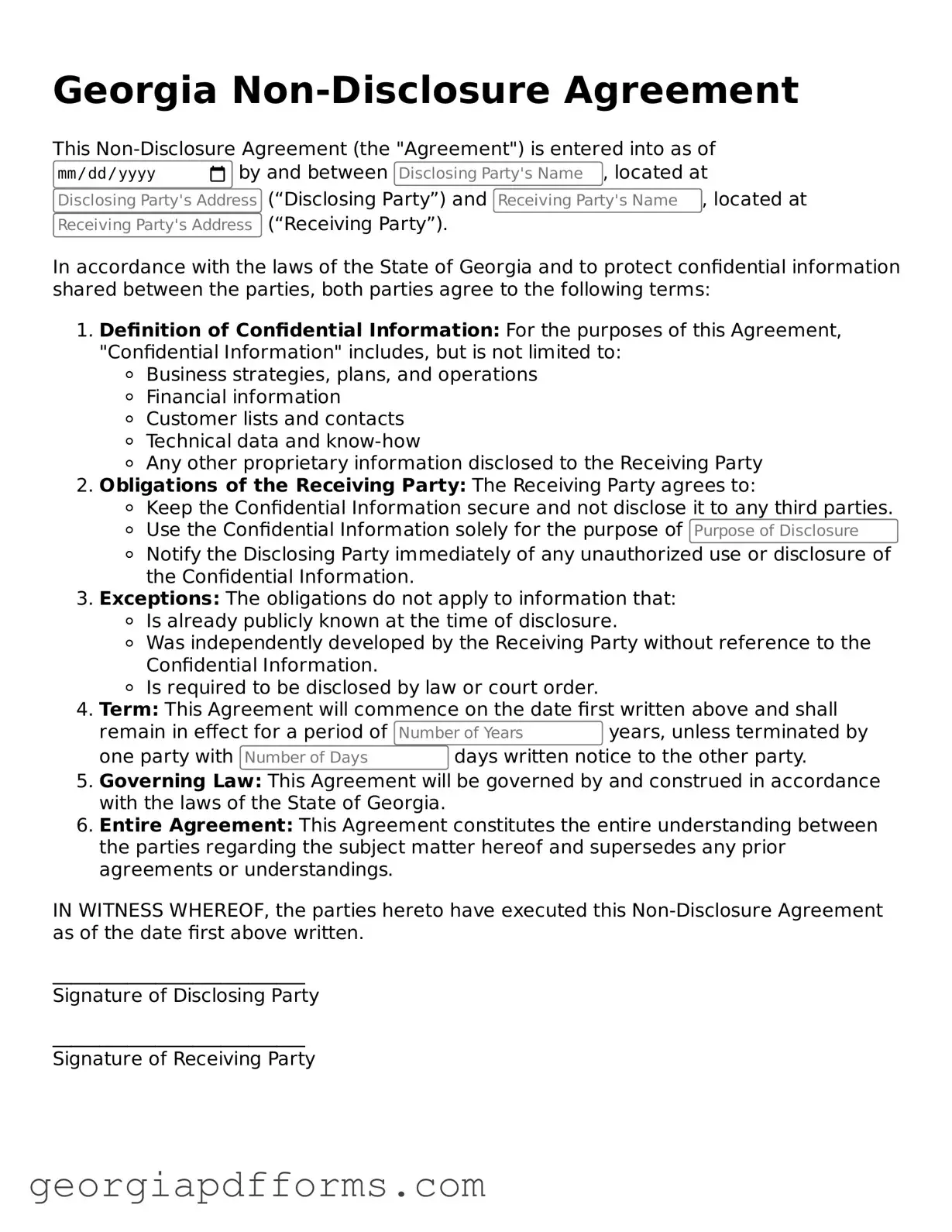Official Non-disclosure Agreement Document for Georgia State
A Georgia Non-disclosure Agreement (NDA) is a legal document designed to protect sensitive information shared between parties. This agreement ensures that confidential details remain private, fostering trust and collaboration in business relationships. By outlining the responsibilities of each party, the NDA serves as a crucial tool in safeguarding proprietary information.
Access Editor Now

Official Non-disclosure Agreement Document for Georgia State
Access Editor Now
Almost there — finish the form
Fill and complete Non-disclosure Agreement online fast.
Access Editor Now
or
Free PDF File
